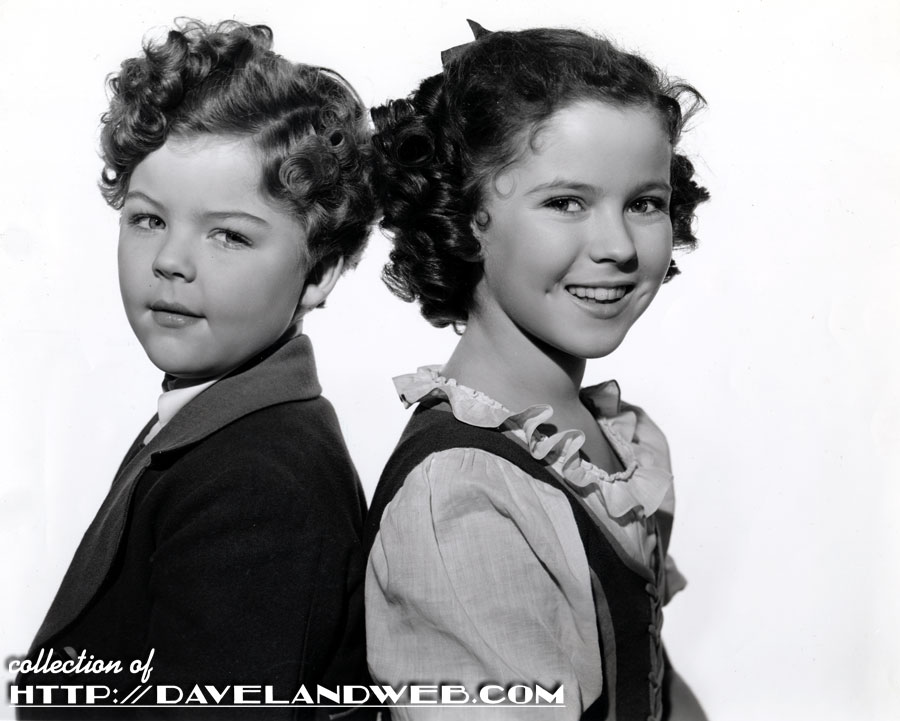
Thanks to Melissa (aka “The Colonel”), I recently learned of the passing of Johnny Russell, who costarred in “The Blue Bird” (1940) with Shirley Temple. The Hollywood Reporter did a short little write-up about Russell, who was born John R. Countryman. Sounds very patriotic! The article contained the usual semi-correct info as well as the outright `myths:
In the biggest role of his brief acting career, Russell portrayed Tyltyl, the younger brother of Temple’s Mytyl, in the fantasy film The Blue Bird (1940), which was Fox’s answer to MGM’s The Wizard of Oz, released a year earlier. In a dream, the two kids set out on on a series of adventures.
While not completely false, Producer Darryl Zanuck’s choice of “The Blue Bird” for Shirley had more to do with Disney’s financially successful “Snow White” than it did with the still unreleased “Wizard of Oz.” Zanuck attempted to buy “Oz” for Shirley but was outbid by MGM. He began negotiations for “The Blue Bird” in February 1939, a good six months before the release of “Oz.” In a touch of irony, the rights to film “The Blue Bird” cost Zanuck $25,000 more than MGM’s winning bid for “Oz.” As Shirley recounted in her autobiography Child Star:
Some thought our film was conceived as a retaliation to MGM’s Wizard of Oz. Zanuck staunchly resisted such innuendo. “Oz is a musical comedy without any drama or sentiment,” he declared. “The Blue Bird is strictly a dramatic fantasy. MGM made extravagant blunders and underwent financial tortures. We do not intend to copy Oz as to theme, or the mistakes that were made.”
During the initial story conference on April 24, 1939, Zanuck continued to weigh in “against ever getting into the type of spectacle of ‘Midsummer Night’s Dream,’ ‘Alice in Wonderland,’ or ‘The Wizard of Oz,’ all of which are flops. This is the human, simple adventure of two little children,” he said. Since “The Wizard of Oz” hadn’t been released yet, he was most likely referring to the 1925 silent film version with Oliver Hardy.
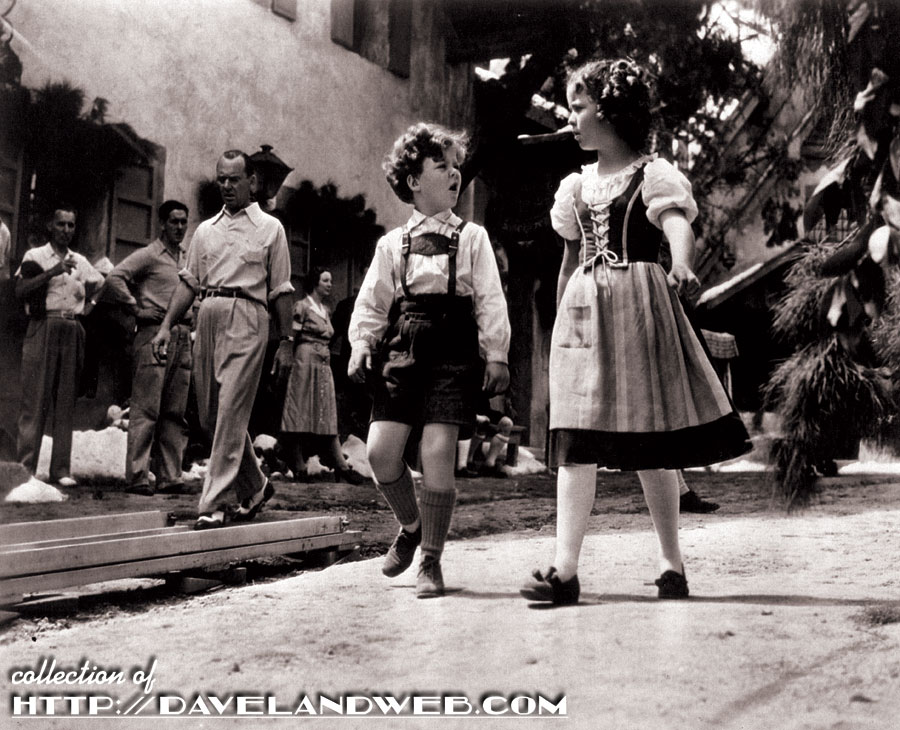
Another tidbit from the Hollywood Reporter obituary:
Temple’s mother, Gertrude, was reportedly unhappy that her daughter was sharing so much screen time with the adorable Russell and sought to have him replaced, but producer Darryl F. Zanuck insisted that the youngster remain.
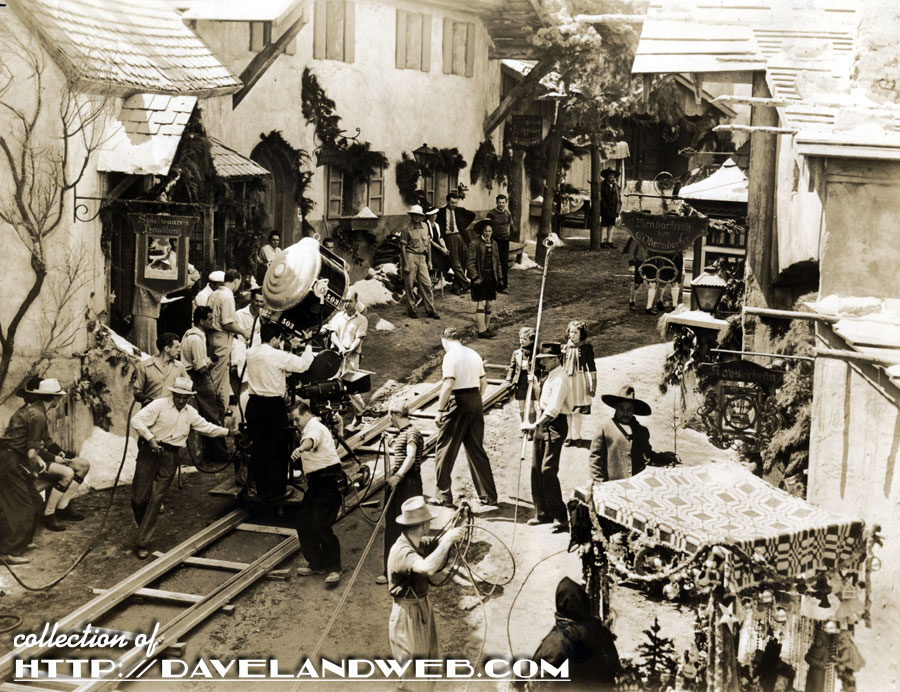
Mrs. Temple had concerns about the script, the size and characterization of Shirley’s role, and her costar, Johnny Russell. As Shirley recounted:
She was critical of Johnny Russell, a boy co-starring in some of my scenes. Although only six years old, he was an extroverted kid with a gift of mimicry…The mimicry annoyed Mother, but I suspect she disliked his casting because Russell was younger and could potentially upstage me on that basis. What I needed was someone my own age she urged Zanuck, again through attorney Wright. “Ridiculous,” responded Zanuck. Two contemporary children meant I could not be the leader, as the story required. “If the boy were the same age, we would have to assume he was mentally incompetent or otherwise deformed if Shirley took the leadership away from him,” Zanuck said in a burst of chauvinism. “A younger brother can cling to her for protection and guidance during the great adventure.”
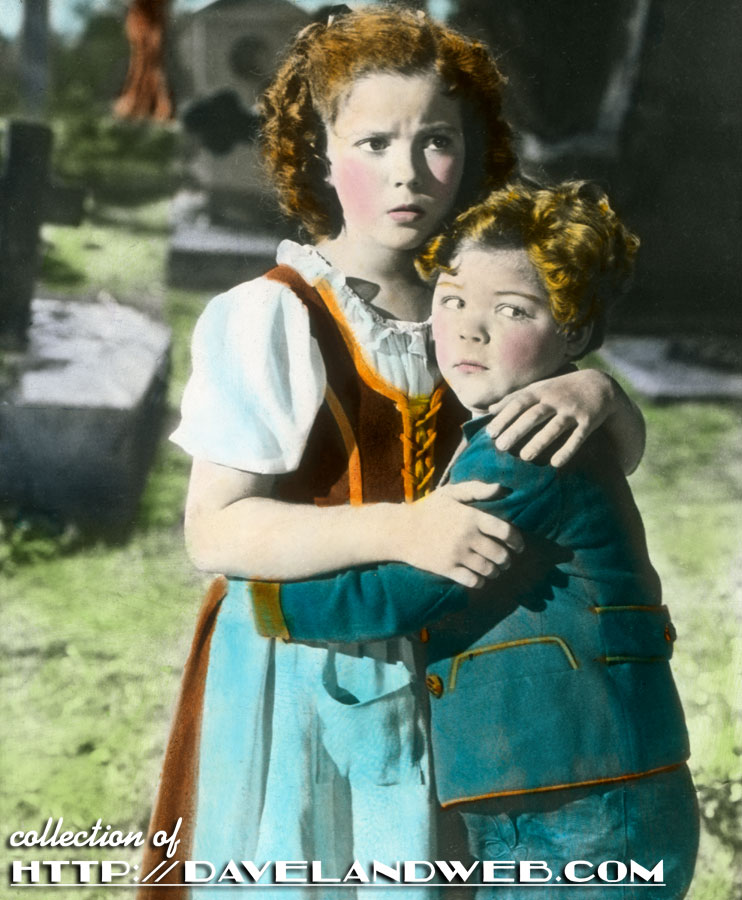
In the play, the brother was older than the sister. It was Zanuck’s decision to flip the ages to benefit Shirley. Zanuck’s original choice for Tyltyl was Bobs Watson (“Boys Town,” 1938), but in the end, Russell was cast, most likely because he was three years younger than Watson.
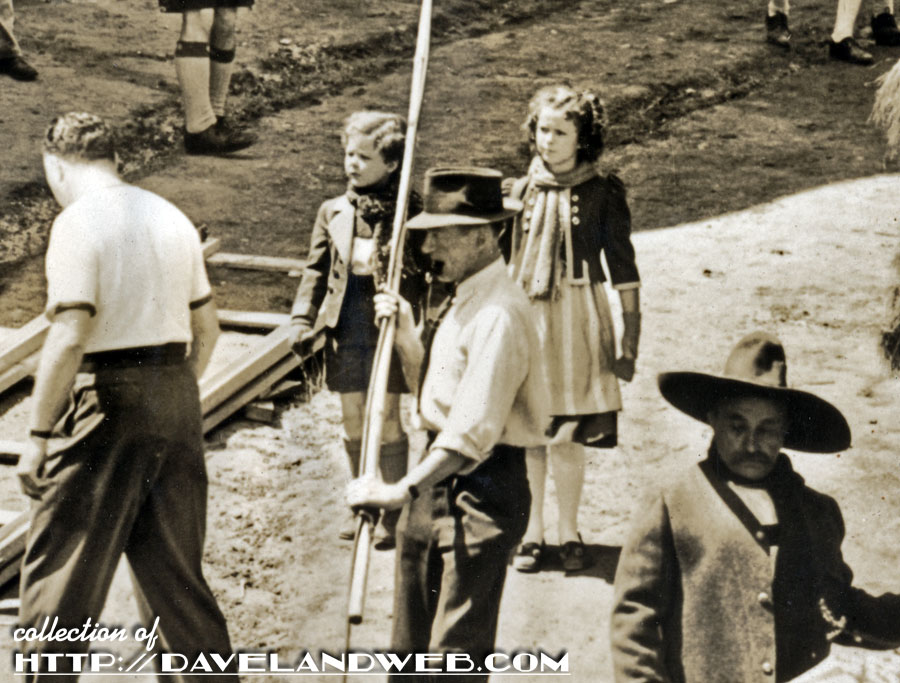
Zanuck also dropped some of the characters in the original story so that the story focused more on Shirley, in an attempt to appease the Temple family, who had become increasingly more vocal about their fears about Shirley’s future at Twentieth Century-Fox. Mrs. Temple had begun to consider other options since Zanuck avoided any direct contact with her, which made her feel that Zanuck’s interest in Shirley was waning and more focused on others in the Fox stables, such as Alice Faye and Sonja Henie. Just in case the project did not meet expectations, Gertrude had checked out the Westlake School for Girls considering it as a possible non-studio school for Shirley. Attending Westlake would enable her daughter to establish friendships with girls from upper-class homes and obtain a well-rounded education. In the detailed shot below, you can see the ever-present Mrs. Temple on the set during filming, with Shirley’s bodyguard, Griff (John Griffiths), standing next to her.
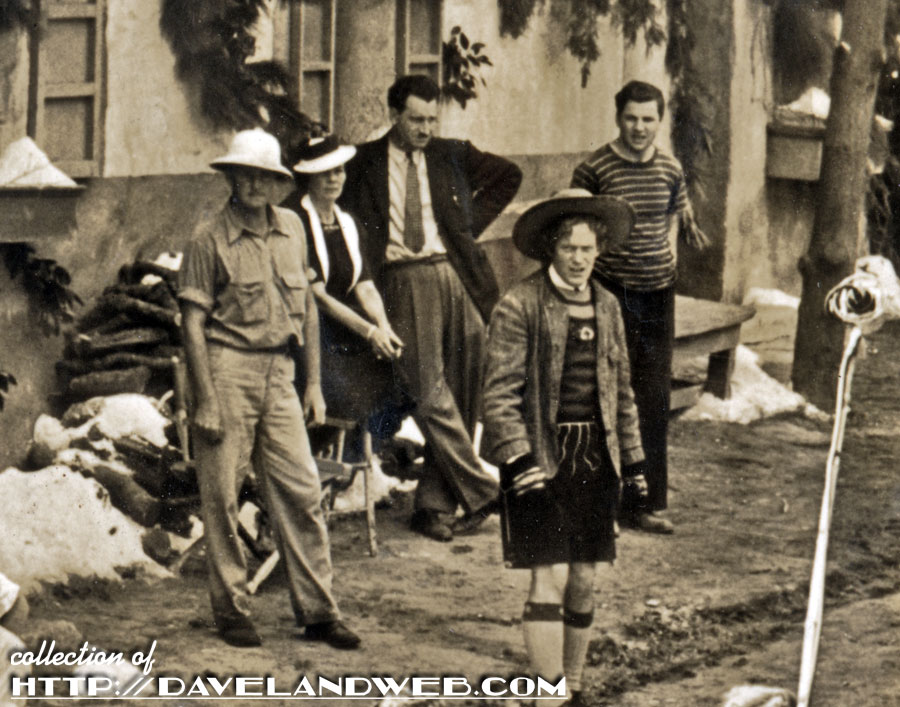
For the Screen Guild Theatre radio broadcast of “The Blue Bird,” which aired December 24, 1939, Russell’s role was replaced. Sorry, Johnny!
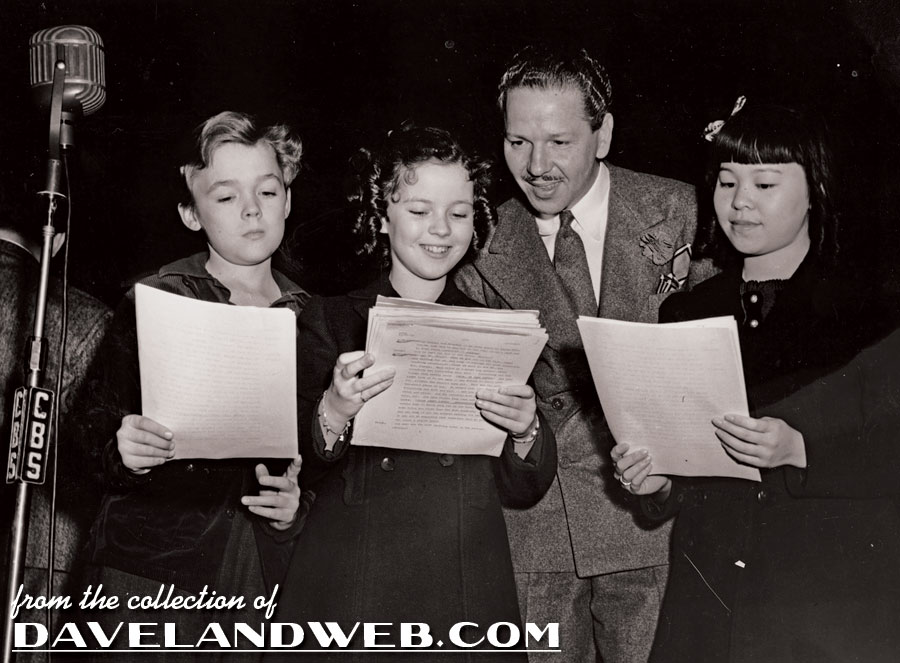
Back to the Hollywood Reporter:
Countryman came on active duty in the U.S. Foreign Service in February 1962 and reported to the diplomatic mission in Istanbul about a year later. He would have postings in Saudi Arabia, Libya and Gabon before serving from 1976-78 as deputy director and acting director of Arabian Peninsula Affairs at the U.S. State Department, when he dealt with the Iran hostage crisis. In the mid-1970s, he and Temple reconnected when he was stationed in Gabon and she was the U.S. ambassador to Ghana.

Shirley would later comment proudly about how she continued to “upstage” Russell, even into adulthood:
Our issue of precedence was not in doubt then nor thirty-five years later in West Africa. By then I was a ranking U.S. ambassador, while Russell was a deputy chief of mission in a nearby national, still my junior by one step.
See more “The Blue Bird” photos at my main website.

No comments:
Post a Comment